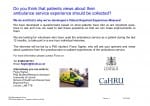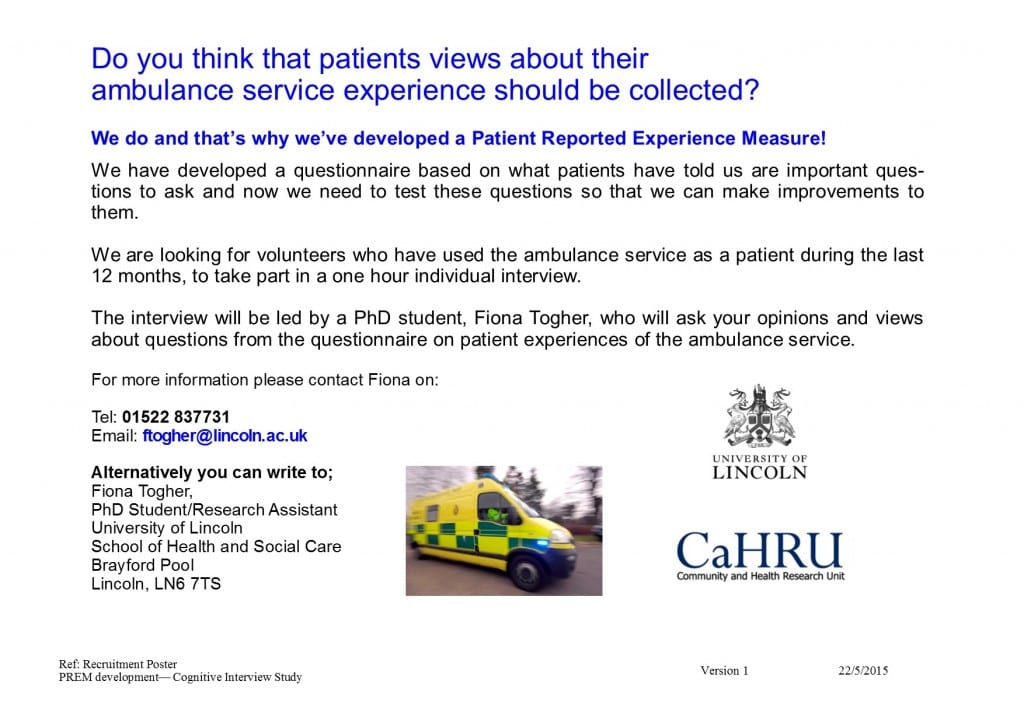If you have used the ambulance service in the previous 12 months and are happy to take part in an interview for a new study we would like to hear from you.
This study is part of doctoral research being undertaken by Fiona Togher, Graduate Research Assistant at CaHRU, to develop a Patient Reported Experience Measure (PREM), a brief questionnaire for measuring experiences of ambulance service users. This will enable NHS ambulance services and their commissioners to routinely assess differences in patient experiences between and within organisations and to stimulate positive changes to the experiences of ambulance service users through feedback, training and education to clinicians; it could also be an opportunity to identify the strengths of ambulance service care and provide evidence of good practice.
The purpose of this study is to try to understand how people interpret the questions that have been developed so that we can improve them. In order to do this we are conducting interviews with ambulance service users, showing them the latest version of the questionnaire, and asking them to respond to the questions and share their thoughts and opinions of the questions.
If you would like to take part please contact Fiona Togher on ftogher@lincoln.ac.uk or 01522 837731.
Fiona Togher













